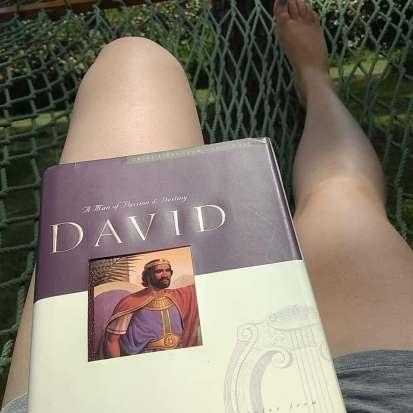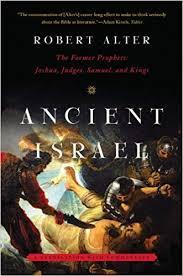As a classical homeschool mom, I encounter many lists, I don’t always remember their sources, and often I add to them. One list is my “Chronological Order of People to Cover,” scrawled out in a yellow, college-ruled, spiral notebook that I picked up for some ridiculously inexpensive price (11 cents sounds about right) at a school supply clearance sale post Labor Day. There’s a sloppy box around my ineloquent title, and my initial attempt at writing neatly at the top of the page, beginning with:
“Cheops, pharaoh of Egypt 2700-2675 BC
epic Gilgamesh legend by 2600 BC, written 2100
Hammurabi 1750 BC
Hatshepsut 1480 BC
Tutankhamen 1355 BC…
the list goes on, until I reach King David 1000 BC”
King David is often skipped over when you consult secular lists, after all he’s not just known as the King of the Israelites, he’s the scrawny kid on the felt boards in your Sunday School class who killed a giant with a slingshot.
It’s true that those most interested in King David’s existence would be those studying Judaism or Christianity, as there are not many references to his historical presence outside those sources. But it is also interesting that he appears in the Quran, as well as the Tel Dan Stele, a stone with Aramaic writings regarding the battle history and reign of King Hazel from the 840’s. In Hazael’s account of his rule and victories, he includes an account of having killed a man of the House of David.
I love history. I love archeology. Maybe one day I’ll do more with these loves than read a lot of books, maybe not. But this bit of history found on a basalt stone is enough for me to remember that the history of God’s chosen people is a history worth studying by all people, whether you believe in religion or not. The Old Testament, archeology, all of these things are stories and evidence that point to the good news of Jesus Christ and why He’s available for ALL people to accept. All of these people are relevant pieces to the giant web of life and affect religion and politics today.

During my separation from my ex-husband I read a Beth Moore study called David: 90 Days with a Heart Like His. It was my first Beth Moore study, despite being from the bible belt of Houston. I found it comforting, captivating even. During my latest revival of the ancient history cycle with my kiddo, I read David: A Man of Passion & Destiny by Charles R. Swindoll and I found it both theologically and spiritually educational.
Beth Moore’s study, as you can imagine, goes into all the great things we think about David. All the things that truly help us see why he was called a man after God’s own heart. Swindoll does a better job of addressing his sins, the parts of him that make us wonder how this man could possibly be considered a man after God’s own heart. Swindoll addresses what a non-believer might get hung up on: David was a warlord, adulterer, possibly a rapist (depending on how you view the story of Bathsheba), he wasn’t a great father, he had many wives and his household fell to shame and scandal more than once. But David always got back up again. He always repented of his sin, looked to the Lord, and asked how to fix it.
As a history enthusiast, my immediate reaction is to find more sources and do more research on this man. I know his heart, as presented by the bible and Christian commentaries, but I want to know his world. Naturally I made some requests from the library and pulled out a few choice titles from my boxes of ancient history books… yes, boxes – plural – of ancient history books, that I own. I have a bit of a book problem and a perpetually insatiable curious mind. However, I’m still lacking the focus to choose one particular thing to study, fancy degrees, and access to fabulous antiquarian documents.
First up, Robert Alter’s Ancient Israel. I invite you to join me, if you’re interested.

